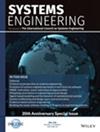Team and communication impacts of remote work for complex aerospace system development
IF 1.6
3区 工程技术
Q4 ENGINEERING, INDUSTRIAL
引用次数: 0
Abstract
Remote work is becoming increasingly common, a trend accelerated by the global COVID‐19 pandemic. Existing remote work research fails to address the challenges and needs of engineers working remotely in Complex Aerospace System Development (CASD), the field responsible for creating and operating aerospace systems. This article presents an exploratory study to understand the challenges, benefits, and strategies when working remotely in CASD. We interviewed 12 CASD engineers working remotely at a major aerospace corporation. We ground our findings in six characteristics of CASD work (complex systems; design paths and feedback loops; relationships with suppliers, customers and regulators; distinct knowledge and skills; one‐off innovation; and high cost of experimentation) and discuss how each of these characteristics challenges remote work. The findings show that CASD requires many teams to work together, and this is encouraged through informal communication, which almost disappears in a remote setting. CASD requires frequent feedback, and we found that feedback was slow when working remotely. Participants found it challenging to demonstrate systems to customers and verify drawings with suppliers, and the interpersonal relationships, which help to bridge disciplinary divides, were harder to maintain remotely. The one‐off nature of the systems designed meant that conceptual work was important, but participants lacked the virtual tools to do this effectively. Lastly, testing hardware components required close virtual communication between technicians and engineers, which was tricky in a detail‐oriented context. This study motivates areas for future work to better understand and address the nuances of remote work by engineers in CASD.远程工作对复杂航空航天系统开发的团队和通信影响
远程工作越来越普遍,全球新冠肺炎疫情加速了这一趋势。现有的远程工作研究未能解决复杂航空航天系统开发(CASD)中远程工作工程师的挑战和需求,该领域负责创建和操作航空航天系统。本文提出了一项探索性研究,以了解在CASD中远程工作的挑战、好处和策略。我们采访了在一家大型航空航天公司远程工作的12名CASD工程师。我们的研究结果基于CASD工作的六个特征(复杂的系统;设计路径和反馈回路;与供应商、客户和监管机构的关系;独特的知识和技能;一次性创新;以及高实验成本),并讨论了这些特征中的每一个如何挑战远程工作。研究结果表明,CASD需要许多团队合作,这是通过非正式沟通来鼓励的,而这种沟通在远程环境中几乎消失了。CASD需要频繁的反馈,我们发现远程工作时反馈很慢。参与者发现,向客户演示系统和与供应商核实图纸具有挑战性,而有助于弥合学科分歧的人际关系更难远程维护。所设计系统的一次性性质意味着概念工作很重要,但参与者缺乏有效的虚拟工具。最后,测试硬件组件需要技术人员和工程师之间进行密切的虚拟通信,这在面向细节的环境中很棘手。这项研究激励未来工作的领域更好地理解和解决CASD工程师远程工作的细微差别。
本文章由计算机程序翻译,如有差异,请以英文原文为准。
求助全文
约1分钟内获得全文
求助全文
来源期刊

Systems Engineering
工程技术-工程:工业
CiteScore
5.10
自引率
20.00%
发文量
0
审稿时长
6 months
期刊介绍:
Systems Engineering is a discipline whose responsibility it is to create and operate technologically enabled systems that satisfy stakeholder needs throughout their life cycle. Systems engineers reduce ambiguity by clearly defining stakeholder needs and customer requirements, they focus creativity by developing a system’s architecture and design and they manage the system’s complexity over time. Considerations taken into account by systems engineers include, among others, quality, cost and schedule, risk and opportunity under uncertainty, manufacturing and realization, performance and safety during operations, training and support, as well as disposal and recycling at the end of life. The journal welcomes original submissions in the field of Systems Engineering as defined above, but also encourages contributions that take an even broader perspective including the design and operation of systems-of-systems, the application of Systems Engineering to enterprises and complex socio-technical systems, the identification, selection and development of systems engineers as well as the evolution of systems and systems-of-systems over their entire lifecycle.
Systems Engineering integrates all the disciplines and specialty groups into a coordinated team effort forming a structured development process that proceeds from concept to realization to operation. Increasingly important topics in Systems Engineering include the role of executable languages and models of systems, the concurrent use of physical and virtual prototyping, as well as the deployment of agile processes. Systems Engineering considers both the business and the technical needs of all stakeholders with the goal of providing a quality product that meets the user needs. Systems Engineering may be applied not only to products and services in the private sector but also to public infrastructures and socio-technical systems whose precise boundaries are often challenging to define.
 求助内容:
求助内容: 应助结果提醒方式:
应助结果提醒方式:


